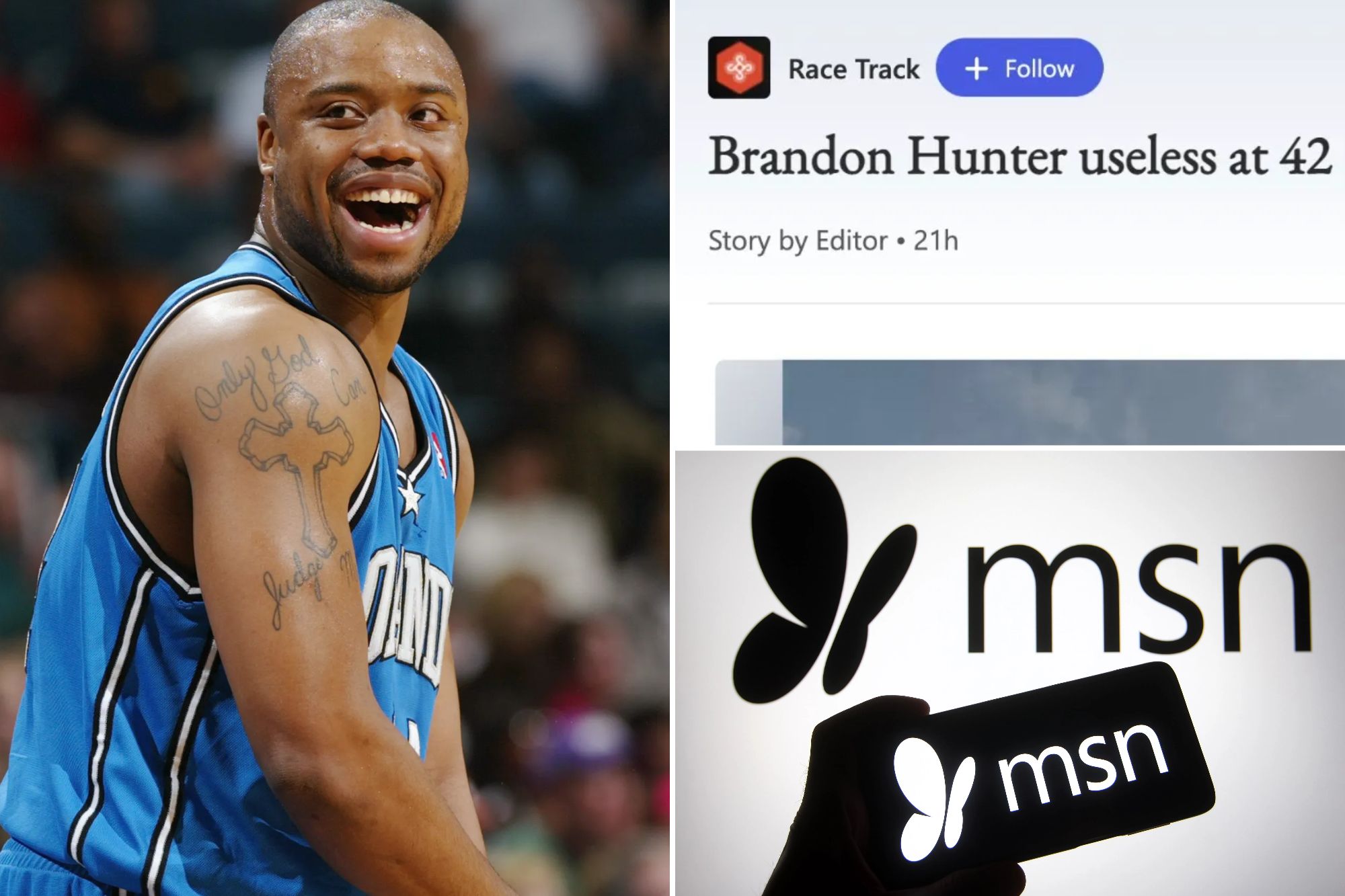Sports
MSN calls deceased NBA player 'useless' in shocking AI-generated headline gaffe – New York Post

Thanks for contacting us. We've received your submission.
MSN, Microsoft’s in-house news aggregation site, sparked outrage after it published an artificial intelligence-powered obituary of former NBA player Brandon Hunter which referred to him in the headline as “useless.”
Hunter, who played professionally overseas and had short stints with the Orlando Magic and Boston Celtics, collapsed and died after a hot yoga class in Orlando last week.
He was 42 years old.
The news story that MSN published about Hunter’s death bore a headline which read: “Brandon Hunter useless at 42.”
The tech news site Futurism was the first to report the insensitive headline.
The story has since been removed from MSN’s website, but screenshots are circulating on social media and internet archive sites.
“The accuracy of the content we publish from our partners is important to us, and we continue to enhance our systems to identify and prevent inaccurate information from appearing on our channels,” a Microsoft spokesperson told The Post.
“The story in question has been removed.”
The body of the article also reads awkwardly.
“Throughout his NBA profession, he performed in 67 video games over two seasons and achieved a career-high of 17 factors in a recreation in opposition to the Milwaukee Bucks in 2004,” the now-deleted story read.
Readers also are told that Hunter “handed away” after attaining “vital success as a ahead [sic] for the Bobcats.”
Social media users blasted Microsoft for the insensitive headline.
“AI should not be writing obituaries,” posted a Reddit user. “Pay your damn writers MSN.”
Another Redditor wrote: “The most dystopian part of this is that AI which replaces us will be as obtuse and stupid as this translation, but for the money men, it’s enough.”
In May 2020, Microsoft laid off more than two dozen journalists who manned the MSN website and its Edge browser.
The company replaced the real-life reporters with AI-powered software.
Last month, MSN published another AI-generated travel section story that raised eyebrows after it recommended that tourists visit a food bank in the Canadian capital of Ottawa.
“The article was not published by an unsupervised AI,” Jeff Jones, a senior director at Microsoft, told the Verge when asked about the bizarre story.
“In this case, the content was generated through a combination of algorithmic techniques with human review, not a large language model or AI system.”
In December, the news site Futurism noted that MSN was publishing fake web items about mermaids and Big Foot on its news site.
MSN also published a false story from the web which claimed that Canadian pop star Grimes, also known as Clair Boucher, publicly called out her ex-boyfriend, Elon Musk, on Twitter for failing to pay child support.
While AI-powered bots such as ChatGPT have made rapid advances in their ability to absorb information and outperform humans on tests, use of the technology to write news stories is still fraught with risk.
Gannett, the newspaper chain, paused the use of AI last month after several embarrassing errors were made in high school sports reports.
One story read: “The Worthington Christian [[WINNING_TEAM_MASCOT]] defeated the Westerville North [[LOSING_TEAM_MASCOT]] 2-1 in an Ohio boys soccer game on Saturday.”
The story, which appeared in the Columbus Dispatch, was deleted, but a screenshot was preserved by the Internet Archive Wayback Machine.
In July, the New York Times revealed that Google developed an AI-powered software called Genesis that is said to be capable of writing news stories.
Google has even started to offer the service to news organizations such as The Post’s parent company, News Corp, as well as the Washington Post.









